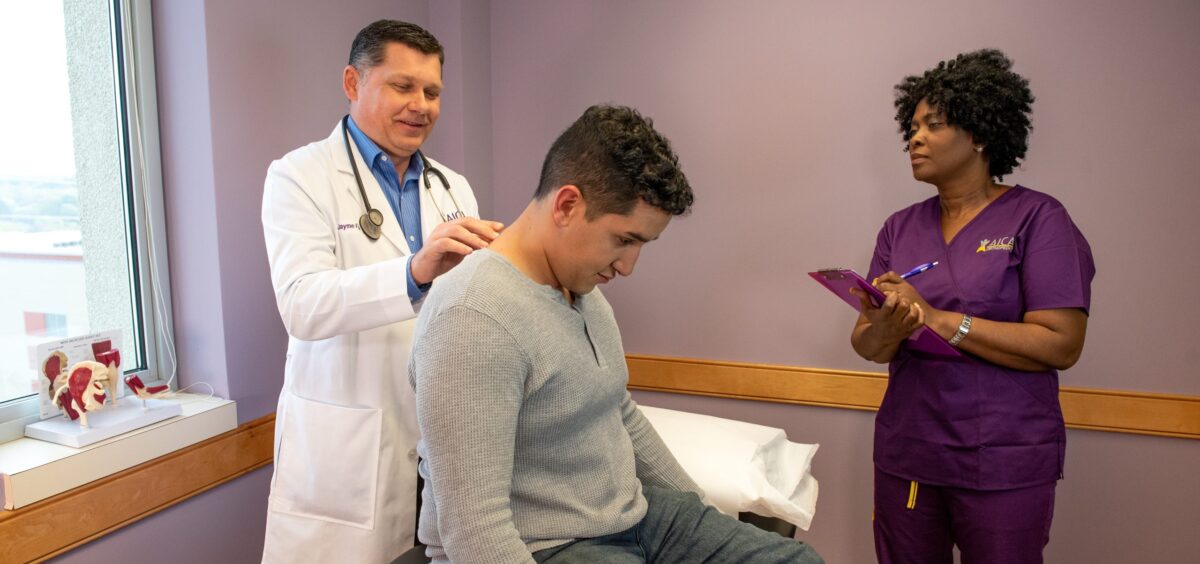AICA Orthopedics
Carpal Tunnel Treatment
Overuse of the wrist and hands can lead to carpal tunnel syndrome. Both men and women can suffer from carpal tunnel, but women are three times more likely to develop this problem than men. Carpal tunnel syndrome is more common in individuals who do jobs that involve repetitive motion, such as construction work, assembly line work, or office work where repetitive keyboard typing is required. Contact our team of specialists at AICA Orthopedics to get treatment.
Symptoms include pain, soreness, numbness, tingling, or burning sensations in the hand and wrist. At AICA Orthopedics, our orthopedic doctors are experienced in treating carpal tunnel to alleviate pain that can affect your daily life. Treatment ranges from medication and steroids to reduce pain and inflammation to carpal tunnel surgery to remove problematic tissue within the wrist that is causing the pain and discomfort.
At AICA Orthopedics we have a combination of doctors that can provide personalized treatment for you based on your situation. Through a physical exam and diagnostic imaging tests, an accurate treatment plan can be recommended. Contact us today and let us know what you are experiencing with your carpal tunnel condition so that we can begin to diagnose and provide accurate, effective treatment.
















